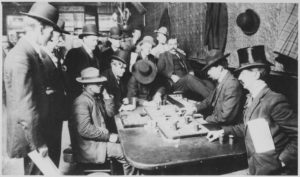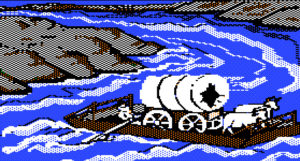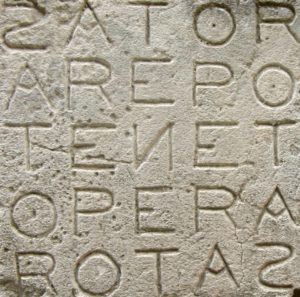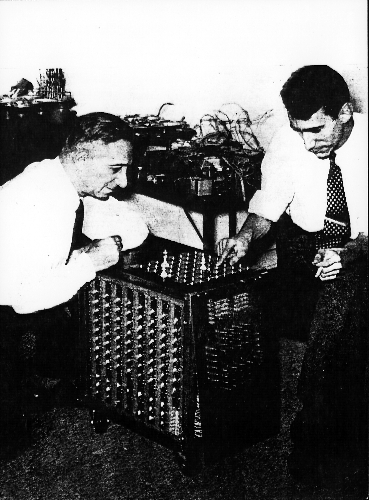Humans have pursued artificial intelligence, in one form or another, for generations. One of the most potent signifiers of intelligence has, historically, been chess. Even though the ability to play the game does not actually require as much cognition as, say, cooking or carrying on a conversation, the ability to play the game has been used as a symbol of intelligence, such as when Deep Blue shocked the world by defeating chessmaster Gary Kasparov in 1997.
Probably the most famous artificial chess player was a fake. The mechanical Turk, initially built in 1870, appeared to be an automaton that could outsmart and outplay human beings. In fact, it was a human being. A living, breathing operator was nestled inside the Turk’s innards, controlling the game. Nevertheless, it remains one of the most famous illusions of all time.
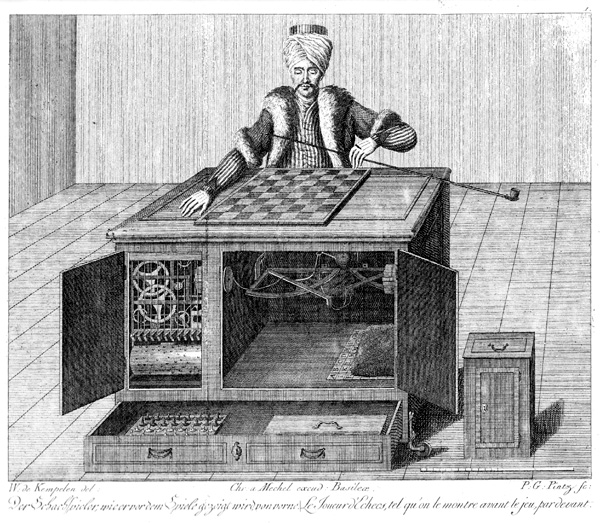
Related Links:
See a modern replica of The Turk in action.
Tom Standage’s The Turk at Powells.com, the book that introduced me to the chess player, and annoyed me when I found out it was a hoax.
Maelzel’s Chess Player by Edgar Allan Poe.
The Turk was the inspiration for the 1927 silent film The Chess Player, about a fictionalized version of the Turk.
The Turk lends its name to Amzon.com’s Mechanical Turk service, the subject of a podcast by NPR’s always excellent Planet Money.
Podcast: Play in new window | Download
Subscribe:
